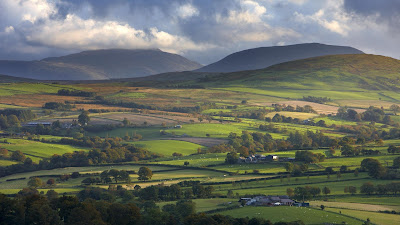Christmas Eve
Christmas hath a darkness
Brighter than the blazing noon,
Christmas hath a chillness
Warmer than the heat of June,
Christmas hath a beauty
Lovelier than the world can show:
For Christmas bringeth Jesus,
Brought for us so low.
Earth, strike up your music,
Birds that sing and bells that ring;
Heaven hath answering music
For all Angels soon to sing:
Earth, put on your whitest
Bridal robe of spotless snow:
For Christmas bringeth Jesus,
Brought for us so low.
~Christina Rossetti~
1893
A Christmas Carol
(Set to music as "In the Bleak Mid-winter)
In the bleak mid-winter
Frosty wind made moan,
Earth stood hard as iron,
Water like a stone;
Snow had fallen, snow on snow,
Snow on snow,
In the bleak mid-winter
Long ago.
Our God, heaven cannot hold Him
Nor earth sustain;
Heaven and earth shall flee away
When He comes to reign:
In the bleak mid-winter
A stable-place sufficed
The Lord God Almighty
Jesus Christ.
Enough for Him, whom cherubim
Worship night and day,
A breastful of milk
And a mangerful of hay;
Enough for Him, whom angels
Fall down before,
The ox and ass and camel
Which adore.
Angels and archangels
May have gathered there,
Cherubim and seraphim
Thronged the air;
But only His mother
In her maiden bliss
Worshipped the Beloved
With a kiss.
What can I give Him,
Poor as I am?
If I were a shepherd
I would bring a lamb,
If I were a Wise Man
I would do my part,--
Yet what can I give Him,
Give my heart.
~Christina Rossetti~
BIO: Christina Rossetti (1830-1894) came from a family of talented poets, writers, and painters. Her father, Gabriele Rossetti, emigrated to England as a poet and political exile from Vasto, Abruzzo, Italy. Her mother, Frances Polidori, was the sister of the notorious Lord Byron physician, John William Polidori. Her brother was the renowned poet and painter, Dante Gabriel Rossetti. Christina often posed for her brother's paintings and became a popular poetess in her own right. In popularity, she became the successor of Elizabeth Barrett Browning after the famous poetess died in 1861. Christina published her first collection of poems in 1862, Goblin Market and Other Poems, which remains popular even today. Two of her poems were set to music: A Christmas Carol and Love Came Down at Christmas. She is buried in London's Highgate Cemetery.











.png)
.png)








